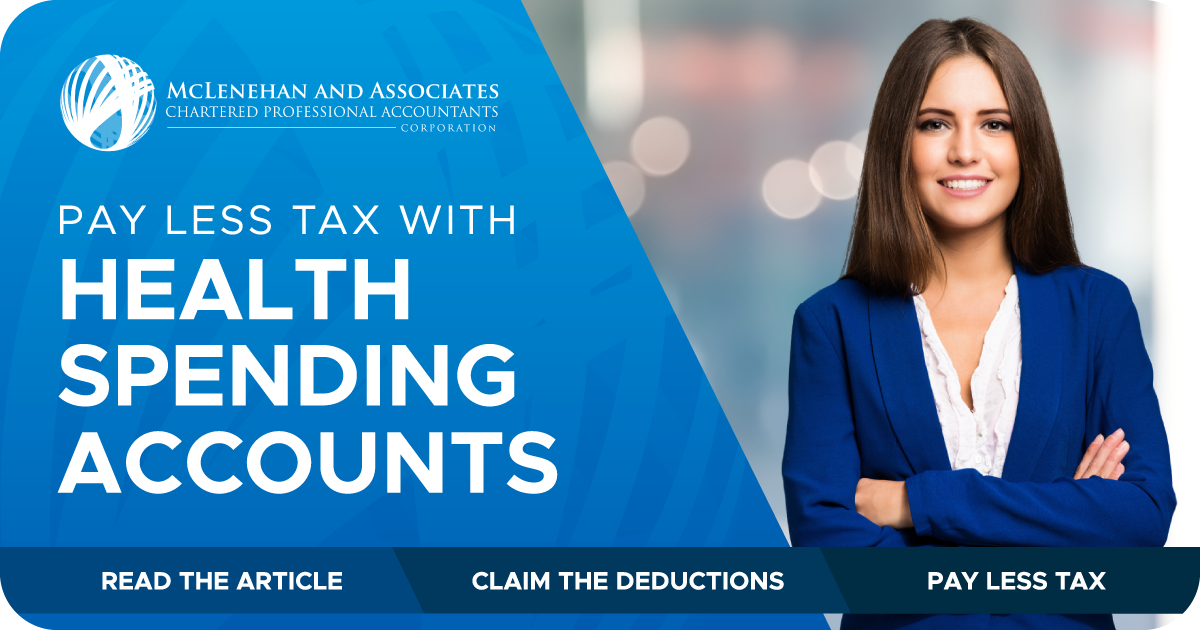Ten tips for choosing your next accountant
Your accountant is about to retire. In a recent member survey the average age of a public practice accountant in Manitoba was found to be 56 years...

A Health Spending Account is a cost-effective alternative or supplement to traditional health insurance. A Health Spending Account can turn your after-tax personal medical expenses into pre-tax deductible business expenses.
Health and dental expenses reimbursed through a Health Spending Account are 100% deductible by your corporation and are received 100% tax free by you, the owner, and your family.
An HSA can be used to pay deductibles, coinsurance, or amounts in excess of the maximums allowed for in a traditional benefits plan. HSAs can cover:
Any expenses which would be eligible for the Medical Expense Tax Credit are eligible for reimbursement through your HSA. Click here for an extensive list of eligible medical expenses which can be reimbursed.
Mark owns an incorporated small business that pays income tax at Manitoba's small business rate of 9% federally and 0% provincially.
Mark draws a salary from his business each year and has a marginal personal income tax rate of 40% (the percentage of tax that he pays on any additional income he would draw from the corporation).
Mark has $5,000 of medical expenses coming up this year and has two options available to him:
Option A: He can draw $8,333 from his corporation and pay 40% of the amount ($3,333) to the government as personal income taxes. He can then use the remaining $5,000 to pay for his personal medical expenses.
- Or -
Option B: He can use $5,000 of personal funds to pay for the medical expenses. He then submits the invoice for services as well as a payment from his corporation to his HSA provider.
His corporation claims a deduction of $5,000 as a tax-deductible business expense which reduces his corporation's taxes payable by $450.
He receives a tax-free reimbursement from his HSA provider and avoids paying an extra $3,333 in personal income taxes.
Using an HSA (Option B) saves Mark thousands of dollars in combined corporate and personal income taxes.
Health Spending Accounts provide a great opportunity for small business owners who:
Reach out to our team today to discuss how a Health Spending Account can benefit your business and your family by providing health coverage along with exceptional tax savings.

Your accountant is about to retire. In a recent member survey the average age of a public practice accountant in Manitoba was found to be 56 years...

The first time I called Canada Revenue Agency (CRA) for a client I was nervous. The prospect of dealing with CRA can be intimidating. But the agency...

Do you use a home office for earning employment or business income? Claiming home office expenses on your tax return is going to reduce your taxable...